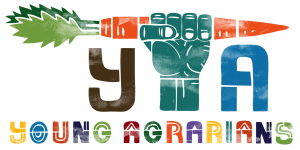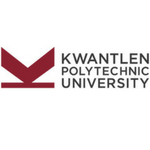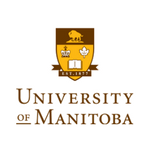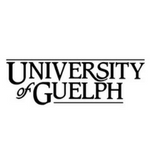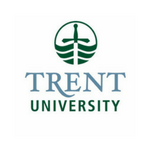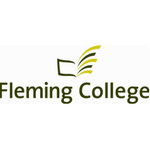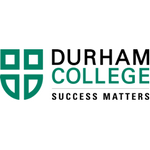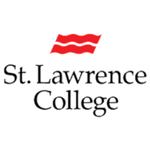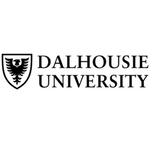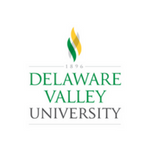Education
Certificates, degrees, courses, practicums and apprenticeship programs in organic and sustainable agriculture.
Young Agrarians Apprenticeship Program – A Program of Organic Alberta
Are you an aspiring farmer looking to gain skills and knowledge that match the ecological values you hold? Are you feeling the farming bug, but not quite ready to take the plunge and launch your own business? Young Agrarians, Organic Alberta and our network of exceptional mentor farmers are now offering advanced, hands-on apprenticeships in regenerative agriculture. Participants with a serious interest, curiosity and commitment to full-time farming are invited to apply.
Our apprenticeships are a full immersion program that puts you into the heart of running a farm business, day in and day out. Our carefully selected family of farm mentors have diverse expertise and skill sets – their farm philosophy is guided by a holistic framework that recognizes the connectedness of the land and people. Although farm activities will be different on each farm, the core activities will involve care of soil, pasture and livestock, farm direct marketing, and using sustainable practices for cereal and grain production.
Key Indicators of Agroecosystem Sustainability Online Course – University of British Columbia
This course builds on general knowledge in biological sciences and weaves together biological, social, and economic aspects of sustainability. The approach is both practical and conceptual. Quantitative and qualitative indicators of sustainability in conventional and organic agriculture are considered in order to assess the direction and degree of sustainability of a farm or a farming system with real-life examples from both. Sustainable policy initiatives are analyzed critically. Social, economic, and political indicators of sustainability are related to agroecosystem management.
Course Modules:
- Module 1: What is Sustainability and How Do We Measure It?
- Module 2: Agriculture on the Urban Fringe
- Module 3: What’s Ticking on the Prairies?
- Module 4: Environmental Farm Planning for Organic Livestock Production
- Module 5: The Process of Creating Organic Standards
Practicum Sustainable Agriculture – University of British Columbia
The UBC Farm Practicum in Sustainable Agriculture is a six (or four)-month experiential learning program designed for aspiring farmers, urban gardeners, environmental educators, and students with an interest in applying their learning about sustainable agriculture and food systems. Students bring a diversity of backgrounds and life experience to the practicum. Our program graduates share a vision of livelihoods and lifestyles grounded in sustainable and community-based food systems. The program is open to all; you do not have to be a UBC student.
Bachelor of Applied Science: Sustainable Agriculture – Kwantlen Polytechnic University
Join the community of leaders and entrepreneurs who are helping to build our sustainable future. Enrol in KPU’s new degree in Sustainable Agriculture. Through a unique combination of classroom and farm-based learning, the program offers a comprehensive perspective on:
- The science of agro-ecosystem design and stewardship;
- Innovative and ecologically sound crop production methods;
- Sustainable farm business management; and,
- The economic, social, and environmental challenges facing our food system
Sustainable, local food production is a rapidly developing component of communities that is on the minds of the public and governments alike. Program graduates will be sought after in fields as diverse as planning, resource management, politics, government, non-government organizations, related business, and production agriculture. This program offers an exploration of the practical foundations and practice of healthy farming as well as an examination of how food and land builds our communities and ties them together.
SOILS Apprenticeships
SOIL links Canadian farmers willing to take on and train apprentices with folks wanting to work and learn on an organic farm using sustainable practices. We aim to facilitate apprenticeships which transfer lasting knowledge to both the farmer and the apprentice. Established in 1989 as a non-profit organization, our goals are:
- To encourage the growth of sustainable agriculture in Canada
- To expose potential apprentices to a rural lifestyle. For those with little or no farming experience an apprenticeship can offer a valuable hands on learning environment in which to acquire the basic skills or even provide the basis for an agricultural career.
- To assist the farmer with the necessary support required to successfully run their organic operation. The farmers and farm community can also benefit greatly from the influx of new ideas, energy and enthusiasm of apprentices.
SOIL acts as a directory that links farm-hosts and prospective apprentices. All listings are submitted to this site by farm employers. Stewards of Irreplaceable Land makes no claims of any kind about content, accuracy, suitability, intent, comprehensiveness, or availability of positions. SOIL makes no representations or guarantees about positions listed on its website and is not responsible for safety, wages, working conditions, or other aspects of employment. It is the responsibility of prospective apprentices to take all necessary precautions when interviewing for or accepting positions, and he/she is solely responsible for obtaining necessary information concerning the employers, using caution and common sense. It is the responsibility of host farms to be aware of federal and provincial labour laws related to hiring apprentices and for apprentice training for full on-farm health and safety. SOIL provides the listing only as a public service, and the listings do not imply any recommendation by the organization.
Agroecology Program – University of Manitoba
Agroecology specializes in the management and conservation of our natural and agricultural resources. Agroecologists develop environmentally friendly weed, insect and disease controls and also help farmers conserve their land and protect Canada’s wildlife and water supply.
The Bachelor of Science (Agroecology) is the ideal program for students with a passion for our planet. Students will learn the biological and physical components of ecosystems, and how to achieve economically sustainable agricultural production while conserving resources and maintaining the integrity of our ecosystems.
Certificate in Organic Agriculture – University of Guelph
The Certificate in Organic Agriculture (first offered in Fall 2018) provides students with an interdisciplinary understanding of organic agricultural systems in the broader context of societal needs and developments. This broad perspective will enable students to investigate how societal changes shape the agriculture and food value chain in general and with regard to specific requirements, such as certification of organic agricultural and food production practices and standards. This certificate will require the completion of 2.50 credits: 1.50 credits of required courses, 1.00 credits from restricted electives.
The certificate will be open to all students registered in any undergraduate program offered by the University of Guelph. Students will need to be in their second year to begin the certificate, as determined by the prerequisite requirement of 5.00 credits to take the OAGR*2070 Introduction to Organic Agriculture course. Students should note that most courses are available as in-class only.
Sustainable Agriculture and Food Systems Program – Trent University
Sustainable agriculture is about creating a food system that is responsible, justice-oriented, efficient, effective, and viable. It’s about farms that can produce food sustainably, as well as humane working conditions, ethical treatment of animals, living wages, fair prices, profitable business models, conservation of biodiversity, resource stewardship, healthy diets and food sovereignty in Indigenous communities.
At Trent you can develop your own understanding of sustainable agriculture and food. Our Sustainable Agriculture and Food Systems Program examines each of the links between farm and table, and their implications for people, the economy, and the planet. You will learn about the challenges and benefits of producing and distributing healthy, affordable food in sustainable ways, while preparing for a career in which you can really effect change.
Sustainable Agriculture Co-ops Program – Fleming College
Throughout the Sustainable Agriculture program you will:
- Learn from experienced farmers and practitioners in class, on farm field days, and during panel discussions.
- Develop your own business case and farm plan.
- Focus on the principles and practices of sustainable agriculture and small farm operations and viability.
- Enjoy small class size and a highly interactive learning environment.
Farming practices in the program are based on the principles of environmental stewardship, farmer profitability, social responsibility and community health.
Horticulture: Food and Farming Program – Durham College
Guided by a field-to-fork philosophy, this program prepares students to be leaders in the rapidly evolving food sector. Working in a one-of-a-kind environment, you will learn to create the wholesome, locally produced, farm-fresh food in demand by today’s consumers, and how you can contribute solutions to communities looking to feed cities in creative and sustainable ways. In addition, you will experience how agri-tourism brings urban residents to farming and will have an enhanced awareness of local food production.
Sustainable Local Food Online Certificate – St. Lawrence College
This certificate explores the practices, principles and philosophies involved in local food system development. The focus is on increasing both academic and hands-on knowledge of regional food initiatives across Canada, alongside international best practices. There is a specific concentration on applied learning, online networking, and community research. This certificate is the first of its kind in Canada, providing a cutting edge advantage when competing for work in the sustainable local food sector.
Craft SW Ontario Apprenticeships
CRAFT SW Ontario is a network of farms that offer internships and plans education workshops for all the interns in their area. We support the pursuit of practical skills and career development in ecological agriculture.
If you’re ready for a full, hands-on experience that will immerse you in ecological farming then you’ve come to the right place. In this website you’ll find everything you need to apply for a full-season farming internship that could launch your organic farming career.
Ecological Agriculture Specialization – McGill University
The Ecological Agriculture specialization provides a holistic understanding of how agroecosystems work and the science of sustainable agriculture. It emphasizes the interrelationships among soils, plants, insects, animals, humans and other components of agroecosystems. As well the specialization applies ecological concepts and principles to the design and management of sustainable agroecosystems.
This specialization is where agriculture and ecology/ environment interact. Ecological agriculture addresses both the practical and theoretical issues that arise from this interaction including ecosystem dynamics, agroecology of food crops, and the role of agriculture in rural and urban landscapes. The specialization strives to view agroecosystems as a whole in the context of today’s global economy, social systems and environment. Through coursework and the possibility of internships students will learn about both the environmental and social context of agriculture and be able to develop workable solutions to the challenge of sustainable food production.
Certificate of Specialization in Organic Agriculture Online Program – Dalhousie University
The online, university credit courses listed below can be taken online to earn a Certificate of Specialization in Organic Agriculture from Dalhousie University’s Faculty of Agriculture. For additional information on course requirements and other details, please see the Extended Learning website.
Fall 2017
- Transition to Organic Agriculture
- Composting and Compost Use
- Principles of Organic Horticulture
- Weed Control in Organic Agriculture
Winter 2018
Organic Farming Program – Delaware Valley University
The Organic Farming Program is a 36-credit, one-year certificate program offered through a partnership between Delaware Valley University and Rodale Institute. The program can lead to a rewarding career producing food in a way that restores, maintains and enhances the natural world. Organic agriculture promotes and enhances biodiversity, biological cycles and soil biological activity. It is based on minimal use of off-farm inputs. Students take courses such as: Commercial Vegetable Production, Organic Food and Fiber, Principles of Sustainable Agriculture, Plant Health Management and Soil Biology. They also apply what they learn at both Delaware Valley University and Rodale Institute during practicums.
Students who complete the program leave with the knowledge and experience necessary to start a small-scale organic farm or, work for an organic operation. The program offers assistance with job placement and developing business plans so that graduates can easily move right into rewarding careers in organic agriculture.
Students are welcome to complete their courses at Delaware Valley University on a part-time or full-time basis, but all three courses at Rodale Institute must be completed during one summer. Students may apply to start during any term. Courses in the certificate program may be applied toward bachelor’s degree programs in agriculture at DelVal.
This credit certificate is available as a stand-alone program and to all undergraduate degree students to complete as part of their studies, regardless of their majors. Students should consult with their academic advisor about how the certificate courses can fit into their individual academic and career plans. Emily Boell, the organic farming program coordinator, works closely with the Organic Farming students to help ensure that their experiences in the program align with their professional and educational goals.
